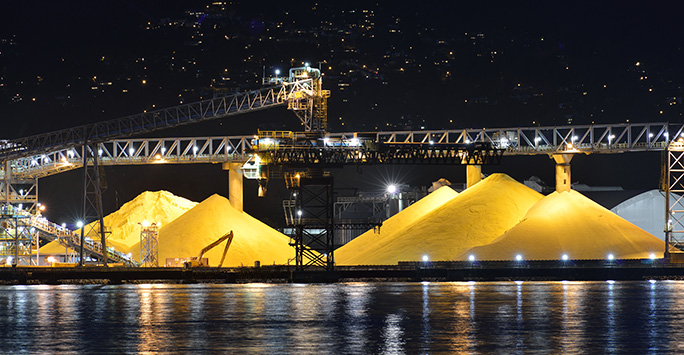Welcome to Liverpool: stay positive. stay brilliant. stay safe.
The Power of 10X
Due to the rate at which we create, use and consume on a global basis, we need to innovate faster and in ways we never though possible to tackle the climate crisis. The University of Liverpool is at the heart of the race to counter climate change through the use of scientific insight, machine learning and lab automation.

THE connect podcast
Listen to Anna Slater and Andy Cooper discuss with Times Higher Education the ways in which they and other researchers at the University are able to collaborate closely with governments and businesses effectively and how they're able to progress at an unparalleled rate due to collaboration on campus. You can also read the related article.

Explore our Materials Innovation Factory
Our Materials Innovation Factory is the place to accelerate your research. Through the use of our industry leading facilities and expertise in materials chemistry, our researchers are able to lead in life-changing and world-saving research.

Queen’s Anniversary Prize for Chemistry
The highest national honour in Higher Education has been awarded to our Chemistry department in recognition of its world-class excellence and pioneering research.

Discover our advanced materials research
Discover more about our expertise in materials chemistry and computer-aided materials design, from saving thermal energy with a coat of paint to transforming sulfur into an alternative to plastics.

Open Innovation Hub for Antimicrobial Surfaces
Explore how we’re developing new processes and technologies to tackle antimicrobial resistance through a multidisciplinary approach.

Developing a green and low-cost acrylic manufacturing process
The energy-efficient Lucite Alpha process generates significant profit for its partners whilst reducing the environmental burden in the multi-billion pound acrylic manufacturing industry.

Follow us
facebook twitter youtube instagram